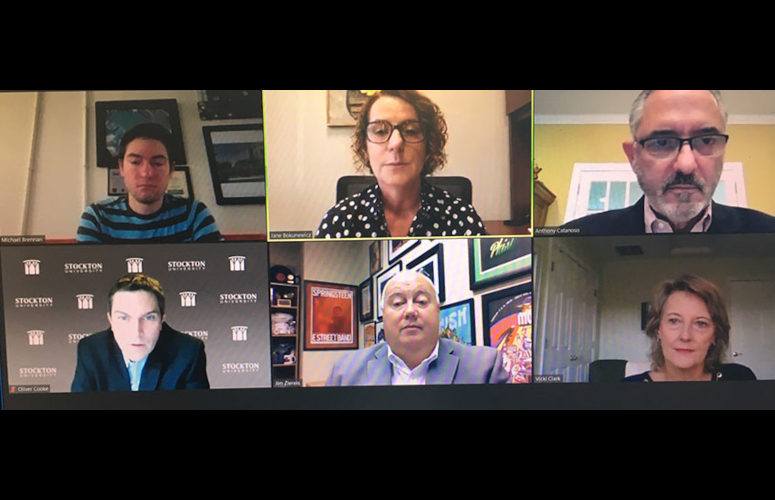
COVID-19, Cannabis & Culture: The Rapid Evolution of Employment Law
By Meg Fry, Contributing Writer On Jan 6, 2022When discussing employment law in 2022, it is important to first consider its fluidity.
“What we’ve said today could change tomorrow,” says Catherine Wells, member and chair of the Chiesa, Shahinian & Giantomasi P.C. Employment Law Group in West Orange.
“Employers need to ensure they remain mindful and updated on all of the changes in the law to remain compliant,” adds Joshua Weiner, partner and co-chair of the Lindabury, McCormick, Estabrook & Cooper P.C. Employment and Labor Law Group in Westfield.
While this article may indeed become a snapshot of its time of publication rather than a dissection of today’s latest developments, in New Jersey and New York in particular, employment and labor laws have been rapidly evolving over the last couple of years.
“It seems like there are new laws and government guidances issued weekly in some cases,” says Marissa Mastroianni, associate in the Cole Schotz Employment, Litigation, and Cannabis practice group in Hackensack.
For example, while numerous government entities at all levels have issued various COVID-19 vaccine and testing mandates, their legal statuses are still being litigated in courts.
“Will they survive legal scrutiny in whole or in part – who knows?” Mastroianni says.
That is just one of the reasons why COVID-19 vaccine and testing requirements are, without a doubt, the biggest issues on employers’ minds today.
“Some companies say, ‘We don’t want to know; we don’t want to mandate vaccination if we don’t have to,’” Wells says. “Others say, ‘We want our people back to work, but with the way our office space is set up, it’s difficult to social distance.’ And then some employers say outright that employees must be vaccinated.
“For employers right now, there is a push to develop and implement appropriate, compliant vaccination and testing policies, whatever they may be – then, once you do that, there will be certain individuals entitled to exemptions,” Wells says.
If an employer does decide to mandate vaccinations and/or testing requirements, they must then be prepared to address requests from employees with medical disabilities or legitimate religious beliefs for accommodations.
“If an employer denies an exemption, can that employee telework? If not, can they be held to certain requirements such as social distancing, masks, temperature checks, and more? And, do you do that for everyone, or do you single out those who are unvaccinated?” Wells says. “It can become problematic when you treat certain employees differently than others – how do you minimize the risk of litigation, and are there also potential privacy issues at stake? Now you have information about someone’s mental or physical condition or their religious beliefs that an employer would not otherwise know. Are you taking the appropriate steps to maintain the confidentiality of that information?”
Mastroianni says regardless of COVID-19, it is imperative that employers train human resource professionals to thoroughly understand the legal accommodation process.
“They need to know exactly how to speak to employees about accommodations, what’s confidential information and what’s not,” she says. “Supervisors can legally bind a company in certain circumstances with the words they say and the actions they take.”
Weiner says he and his firm are beginning to see such repercussions with claims due to COVID-19 through the Occupational Safety and Health Administration (OSHA) and the Health Insurance Portability and Accountability Act (HIPAA).
“When the pandemic started, I realized it was probably going to be about a year before we started to see cases regarding COVID-19, and we are in fact starting to see those now,” he says.
The pandemic also exacerbated mental health issues for many across the country.
“Employers are now receiving accommodation and leave requests for those suffering from mental illness, post-traumatic stress disorder, or general anxiety,” Mastroianni says. “There is a duty under federal and state law for employers to reasonably accommodate disabilities, and an employee’s anxiety could rise to that level.”
The COVID-19 pandemic also caused every human being to reassess their work-life balance.
“People are no longer living to work; they’re working to live, and their job is not their life,” Weiner says. “Although the law does not necessarily require employers to provide employees with all they might reasonably expect (i.e. benefits, paid leave, flexible hours, hybrid/remote work environments, etc.), employers may need to in order to ensure they’re able to retain the best and brightest – even after the pandemic subsides.
“With employees bringing these issues to the forefront, it’s the marketplace dictating changes to employer behavior. It’s usually legislation that does that, but here, it’s grassroots,” Weiner says.
“That’s why we’re seeing labor shortages – people want to work for a company they feel good about,” Mastroianni adds. “Companies need to come to terms with how to not only get people in the door, but also be excited to come to work everyday.”
That can present real challenges, Wells says.
“If an employer wants to return to work in a hybrid fashion, and an employee has relocated without notice, can they continue to accommodate them with remote work, and as a business, do they want to?” she says.
“Additionally, for employees who are eligible for overtime, are employers making sure they are properly recording their time when working from home? Employers who allow hourly workers to work remotely must put in place policies, procedures and appropriate technologies to record hours worked so that they don’t run afoul of wage and hour law,” Wells says.
Despite the continued prevalence and repercussions of COVID-19, it’s not the only thing that has drastically changed employment law over the last two years.
“Employers need to be aware of the new employment protections for cannabis users within the state,” Mastroianni says. “An employer can no longer take any adverse employment action, such as termination, against an employee solely due to a positive drug test for THC.
“If an employee is obviously under the influence of cannabis at work, that would be a perfectly legitimate reason for termination. However, the law also changed regulations surrounding drug testing for cannabis use – there must be a physical examination as well,” she says. “That requirement is currently suspended by the state, but will likely go into effect next year – and those in charge of detecting whether someone may be under the influence really need to understand what that looks like in real-time.”
Mastroianni adds that she expects to see more enforcement actions against companies misclassifying employees as independent contractors in 2022.
“When New Jersey released all these new laws, they conducted an audit of 1% of the companies across the state and found almost 13,000 cases of employee misclassification,” she says.
“If an employer classifies employees as independent contractors, they must be free from the control of the employer and may conduct business how and when they want; if not, employers must pay them as employees with minimum wages, overtime, and from a tax perspective, take out the proper deductions and withholdings, including payments into temporary disability funds and unemployment,” Weiner adds. “New Jersey’s Department of Labor now has numerous penalties and auditing powers to ensure employers are properly classifying their employees.”
In the end, it’s more cost effective to have a full-time human resources executive or an employment attorney on retainer or available on at least a biannual basis to review updates than to be deemed noncompliant because you had no other way of knowing the law.
“You may go 20 years without an issue, but when an employee raises one, they usually come in groups, leading to a slippery slope,” Weiner says. “While it may seem like an unnecessary expense when everything is fine, if you’re not compliant with the law, you can get hit with backpay awards, compensatory and/or liquidated damages, attorney fees, and then you’re under the radar of the Department of Labor.
“I liken it to buying an insurance policy – you pay the monthly premium, and while you may never need to file a claim, if and when the storm hits, you’ll be really glad to have it.”
To access more business news, visit NJB News Now.






